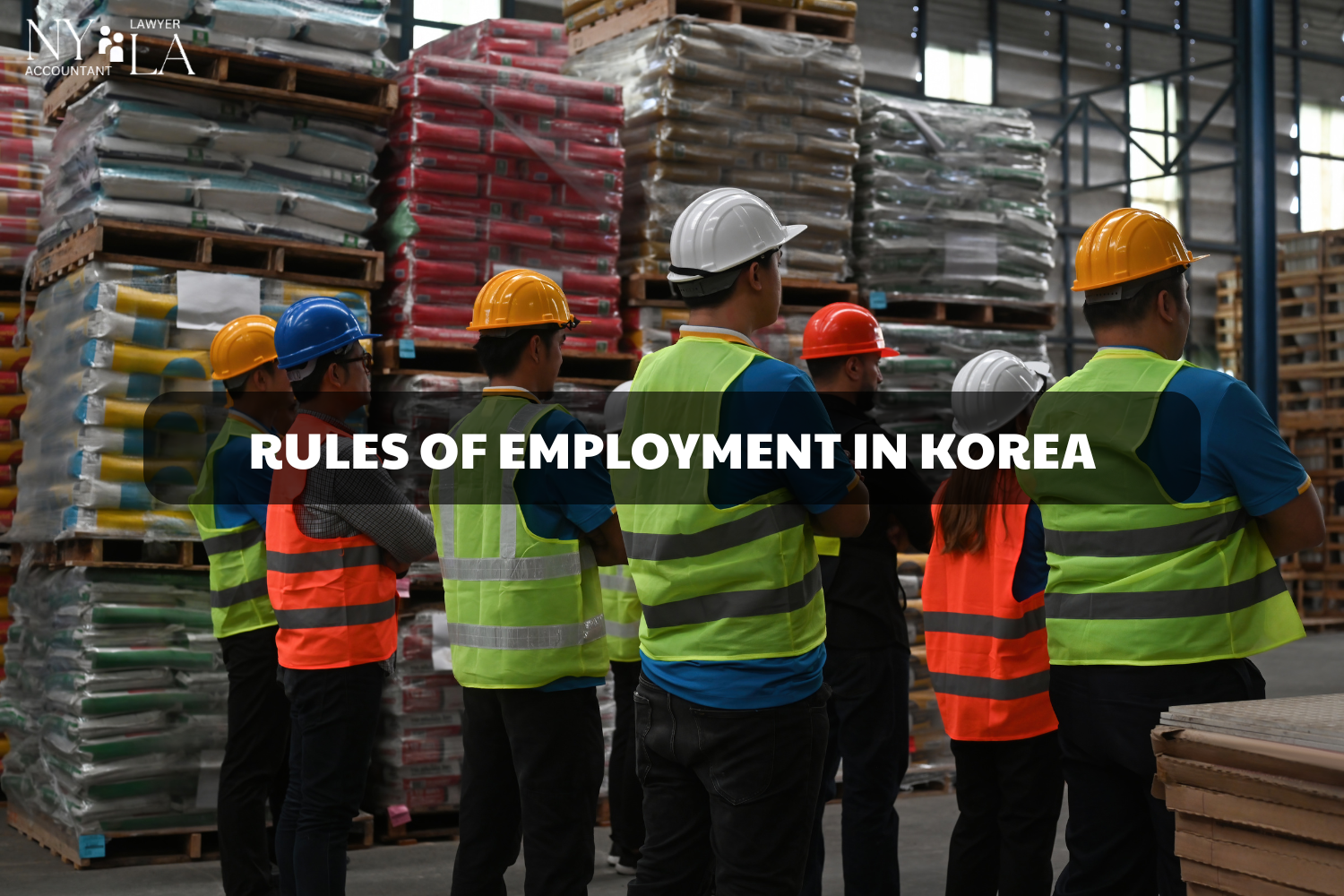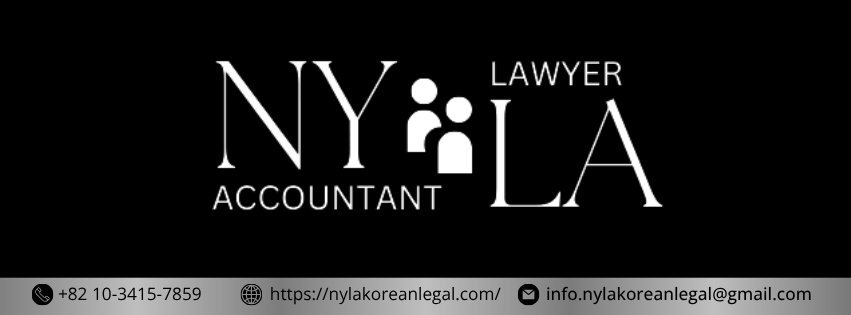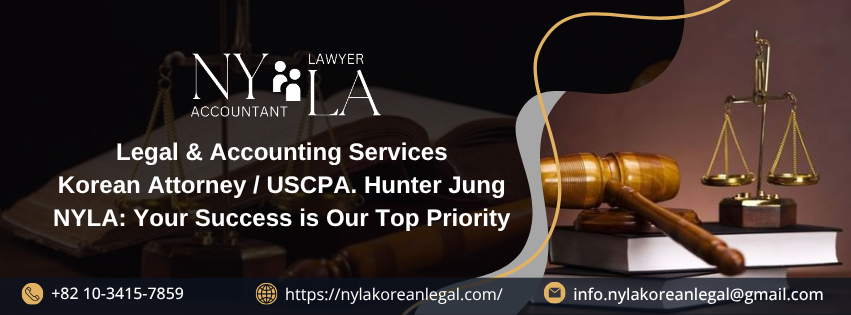Summary
- 1. Introduction to Rules of Employment in Korea
- 2. Legal Basis of Rules of Employment in Korea
- 3. Preparation of Rules of Employment in Korea
- 4. Reporting the Rules of Employment in Korea
- 5. Amendment Procedures of Rules of Employment in Korea
- 6. Importance of Compliance with Rules of Employment in Korea
- 7. Key Takeaways on Rules of Employment in Korea
- 8. Final Thoughts on Rules of Employment in Korea
- 9. About NYLA – Korean Legal Office
1. Introduction to Rules of Employment in Korea
Understanding the Rules of Employment in Korea is crucial for both employers and employees operating within the Korean labor market. These rules are established under the Labor Standards Act, which provides a legal framework to ensure fair working conditions, protect workers’ rights, and promote a balanced working environment. In this article, we will explore the essential aspects of the Rules of Employment in Korea, including preparation, reporting, and amendment procedures that employers must follow.
2. Legal Basis of Rules of Employment in Korea
The Rules of Employment in Korea are mandated by the Labor Standards Act. This act requires employers, especially those with ten or more employees, to formalize and document their employment regulations. The purpose is to ensure transparency and compliance with labor laws. This legal foundation guarantees workers receive clear information about their working conditions, rights, and employer obligations.

3. Preparation of Rules of Employment in Korea
Employers who regularly employ ten or more workers must prepare detailed Rules of Employment in Korea. These rules cover various critical areas that affect the daily work life of employees. Key matters include:
-
Work schedules, including starting and ending times, recess hours, holidays, leaves, and shifts. Clear guidelines ensure employees understand their working hours and break times.
-
Wage-related issues, such as determination, calculation, payment methods, wage periods, and pay raises. Transparent wage policies are essential to maintain trust and comply with the law.
-
Family allowances calculation and payment, which support workers with family responsibilities.
-
Retirement policies, including retirement allowances, bonuses, and minimum wages. These rules help employees plan for their financial security after leaving the workforce.
-
Expenses related to meal allowances and operational tools that employees may need for their work.
-
Educational facilities and opportunities provided for worker development.
-
Protection and support related to maternity leave and work-family balance, such as leaves before and after childbirth and child-care leaves.
-
Safety and health protocols to ensure a secure working environment.
-
Workplace environment improvements tailored to the characteristics of workers, including sex, age, and physical conditions.
-
Support mechanisms for occupational and non-occupational accidents.
-
Rules regarding awards and disciplinary actions to maintain workplace discipline and motivation.
-
Other necessary matters applicable to all workers in the company or workplace.
4. Reporting the Rules of Employment in Korea
Once the Rules of Employment in Korea are prepared, employers must report these rules to the Minister of Employment and Labor. This step ensures that the government can monitor and enforce compliance with labor standards. Additionally, any amendments to these rules must also be reported, maintaining transparency and accountability.
5. Amendment Procedures of Rules of Employment in Korea
Amending the Rules of Employment in Korea is a regulated process to protect workers’ interests. Before making any changes, the employer must gather opinions from the workforce:
-
If a trade union exists, representing the majority of workers, their opinion must be sought.
-
If no such trade union exists, the employer must consult the majority of the workers directly.
Importantly, if the amendments negatively affect the employees, their consent is required before any changes are finalized. This ensures that workers have a voice and are protected from unfair alterations.
6. Importance of Compliance with Rules of Employment in Korea
Strict adherence to the Rules of Employment in Korea benefits both employers and employees. Employers gain from a well-structured workplace with clear regulations that reduce misunderstandings and disputes. Employees benefit from knowing their rights and the conditions under which they work, leading to higher job satisfaction and productivity.
Non-compliance can result in legal penalties, damage to the company’s reputation, and loss of employee trust. Therefore, understanding and implementing these rules is critical for smooth business operations in Korea.
7. Key Takeaways on Rules of Employment in Korea
To summarize, the Rules of Employment in Korea serve as a fundamental component of Korean labor law. Employers with ten or more workers must:
-
Prepare comprehensive employment rules covering working hours, wages, benefits, safety, and more.
-
Report these rules and any amendments to the Ministry of Employment and Labor.
-
Engage with employees or their representatives when drafting or changing rules, especially when changes could be unfavorable.
By following these guidelines, companies ensure legal compliance and foster a positive work environment.
8. Final Thoughts on Rules of Employment in Korea
For businesses operating in Korea, understanding the Rules of Employment in Korea is not just a legal obligation but a strategic advantage. It demonstrates a commitment to fair labor practices and respect for employee welfare. Whether you are an employer or an HR professional, ensuring these rules are well-prepared, reported, and fairly amended will contribute to your organization’s success and reputation in the Korean market.
9. About NYLA – Korean Legal Office

■ NYLA – Your Trusted Legal Partner in Korea
At NYLA, we understand that the success of foreign businesses in Korea requires not only a solid business strategy but also reliable legal support. With a team of experienced Korean attorneys and legal professionals, NYLA provides tailored legal services for companies, investors, and individuals operating or planning to establish a presence in Korea.
We support our clients throughout the entire business journey with comprehensive services, including:
- Legal consultation on company establishment, taxation, and immigration;
- Advice on commercial real estate, franchising, and product distribution;
- Support in human resources, marketing, and business strategy.
In addition to legal advisory, NYLA also represents clients in civil litigation cases related to business, labor, marriage, family, and inheritance to ensure their rights and interests are fully protected.
■ Contact NYLA

If you’re a foreign business or individual looking for a reliable legal partner in Korea, NYLA is here to help. We are committed to delivering effective, practical, and personalized legal solutions for every client.
With a proven track record of assisting hundreds of international clients, our team is equipped to help you navigate complex legal challenges—whether it’s commercial disputes, contract issues, or foreign investment guidance.
Don’t let legal matters hold you back. Let NYLA be your trusted guide in the Korean market.
■ Get in touch with NYLA for expert legal support
| Website: https://nylakoreanlegal.com/
FB: https://www.facebook.com/nyla.koreanlegal Tiktok: https://www.tiktok.com/@nylakoreanlegal Youtube: https://www.youtube.com/@NYLA-xd8qx Email: info.NYLAkoreanlegal@gmail.com SĐT: +82 10-3415-7859 |
 |






















































